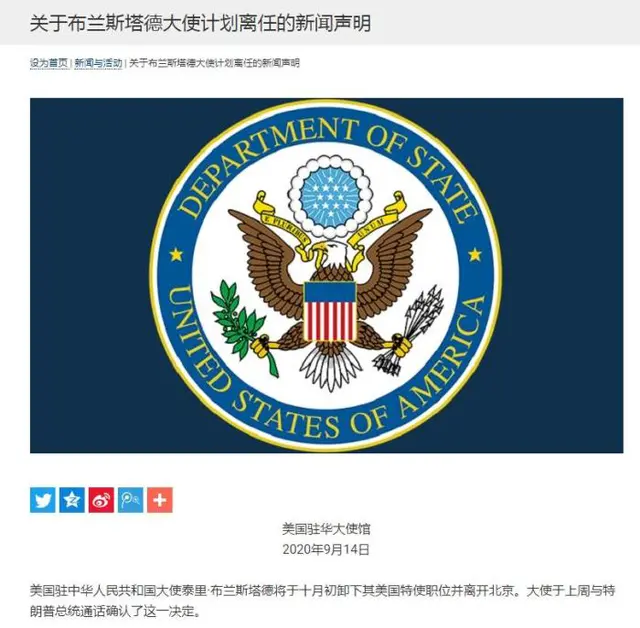Japanese Prime Minister Shinzo Abe's decision to attend the Winter Olympics and meet his S. Korean counterpart was likely not an easy decision, given the extent of opposition at home.
The lingering issues of "comfort women" and territorial disputes are the primary reasons many Japanese oppose the visit, says Shen Haitao, professor at the Northeast Asian Studies College at China's Jilin University.
S. Korean President Moon Jae-in and Japanese Prime Minister Shinzo Abe shake hands in Hamburg, Germany, on July 7, 2017, on the sidelines of Group of 20 summit talks.
The Moon-Abe summit was due to take place ahead of Friday's opening ceremony of the Olympics in PyeongChang, 180 kilometers east of Seoul.
Abe sought to explain his presence in S. Korea by citing the fact that Tokyo will host the summer Games in 2020.
"I want to cheer up the Japanese athletes by attending the opening ceremony of the PyeongChang Winter Olympic Games, as it is also being hosted in Asia," he told a news conference.
Historical disputes
Abe also made it clear that he will discuss the issue of "comfort women" – Korean women sexually exploited by the Japanese military during World War Two – and, specifically, the 2015 deal reached by the two countries in which Japan made an apology and promised an 8.3-million- US-dollar payment.
"During the summit, I want to firmly convey Japan’s stance on the agreement over the ‘comfort women’ issue," he said.
The 2015 deal made under former S. Korean president
Park Geun-hye's administration said the two nations "finally and irreversibly" settled the prolonged dispute. However, people in South Korea rejected the deal saying it was reached without consulting the surviving victims.
A S. Korean protester wearing a mask of Japanese Prime Minister Shinzo Abe in mock apology in front of the "comfort women" statue outside the Japanese consulate in Busan, S. Korea.
During his election campaign, current president Moon Jae-in promised to review the deal and to seek additional measures from Japan. In December the review concluded that the deal was "flawed."
But Abe has publicly rejected the request and demanded Seoul remove the "comfort women" statue in front of the Japanese embassy in Seoul.
Japanese foreign minister Taro Kono also warned that any attempt to change the deal would be “unacceptable” and make relations “unmanageable.”
He told reporters that the deal should be seen as a crucial foundation for future cooperation between Japan and S. Korea given the "threats" from the Democratic People's Republic of Korea (DPRK).
In January, S. Korean foreign minister Kang Kyung-wha finally said that the 2015 settlement was a valid bilateral agreement but called on Tokyo to keep making efforts to restore honor and dignity to the victims, following Abe's decision to fly to PyeongChang.
Media reports said that the concessions were made as the two countries sought common ground on the DPRK but still leave bilateral relations in limbo.
Another historical issue, the territorial disputes involving a set of disputed islets, known as Dokdo islets in South Korea and Takeshima in Japan, may also cast a shadow over the talks.
Experts say that if Abe manages some achievements on settling these historical issues, he would secure more confidence votes from his electorate and add stability to his government.
DPRK issue: A common ground
Japanese newspaper The Sankei Shimbun, citing from a senior official in Japanese government, reported that the White House urged Abe to go PyeongChang.
It said the US needs Abe as an ally to maintain pressure on the DPRK and stop Seoul from being overly obsessed with inter-Korean dialogue.
Observers believe Abe had own intentions on DPRK issues and wants to play a more active role on the Korean Peninsula.
"An Olympics is just an Olympics," the prime minister told reporters. "We must think about it separately (from other issues),” adding that "The policy of putting maximum pressure on the (DRPK) must never be shaken. I want to clearly tell Moon this."
Analysts also say that during the summit Abe may also propose to conduct the annual Foal Eagle joint military exercises between the US and S. Korea after the end of the Winter Olympics and Paralympics. They had been postponed ahead of the games.
Hajime Izumi, a professor at the Institute for International Strategy at Tokyo International University, stressed that S. Korea and Japan share a common interest in the DPRK, but they do not have common approach.
Moon and Abe met twice in 2017, in July as leaders gathered in Hamburg, Germany for Group of 20 Summit, while in September on the sidelines of the Eastern Economic Forum in the Russian city of Vladivostok.
At both meetings, they vowed to strengthen pressure on the DPRK and Moon has publicly said he supports the “maximum pressure” approach espoused by the Trump and Abe administrations.
Abe's trip was aiming to send “a strong message to South Korea” not to be too conciliatory toward DPRK, the Sankei Shimbun reported.
Moon has promoted the 2018 PyeongChang Winter Olympics as the "peace games." It is highly expected to be a game changer in inter-Korean relations as the DPRK and S. Korean finally reached agreements to resume formal talks as well the country's leader’s sister to the Games.
Japan and South Korea seem able to keep other disputes separate from the DPRK issue, a "two-track" diplomacy strategy that Moon has adopted towards Japan. Moreover, a S. Korea poll shows that more than 60 percent of the population prefer the "two-track" strategy on the separation of historical and security issues with respect to future S. Korea-Japan relations.
(CGTN)
 简体中文
简体中文





